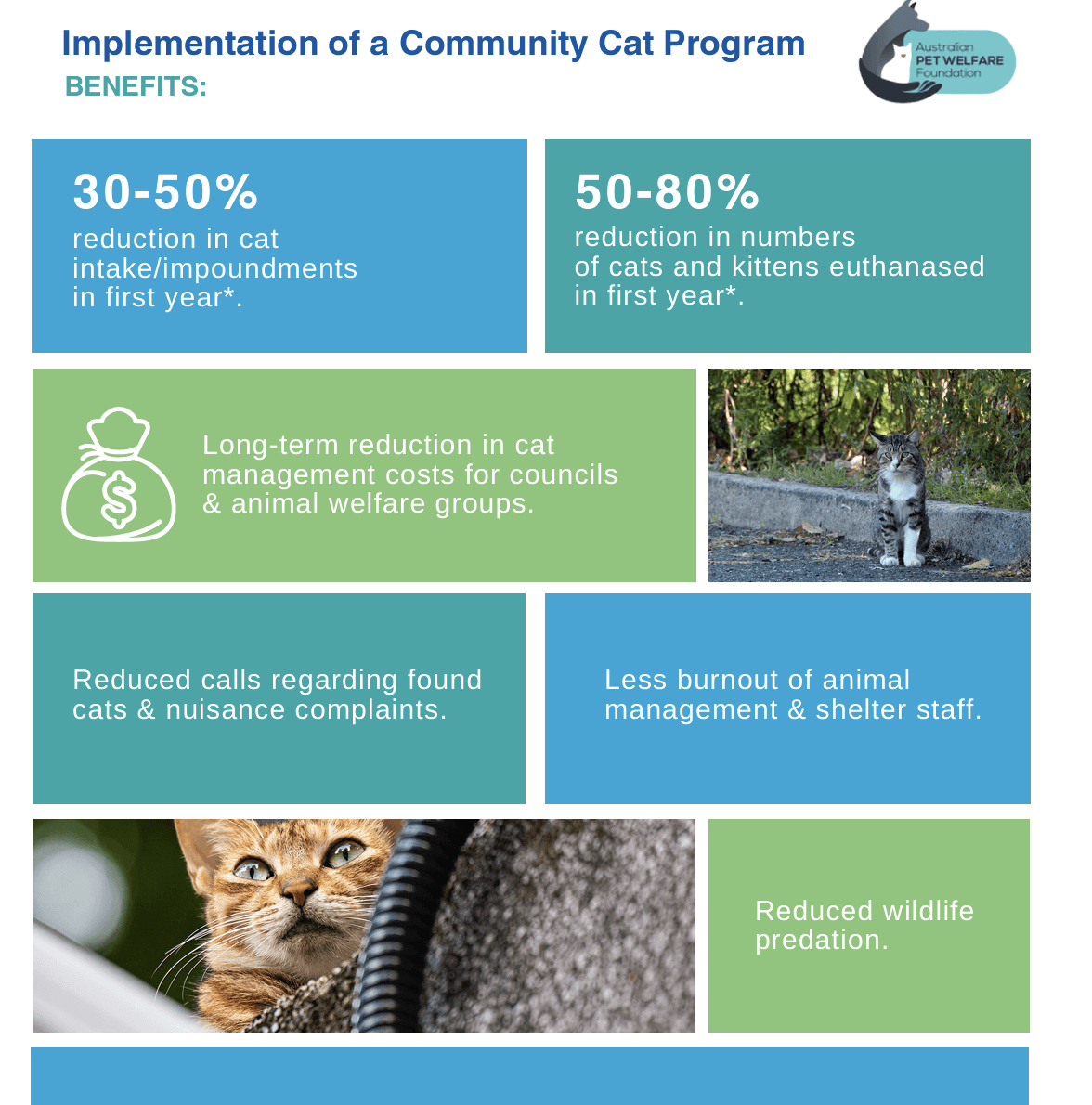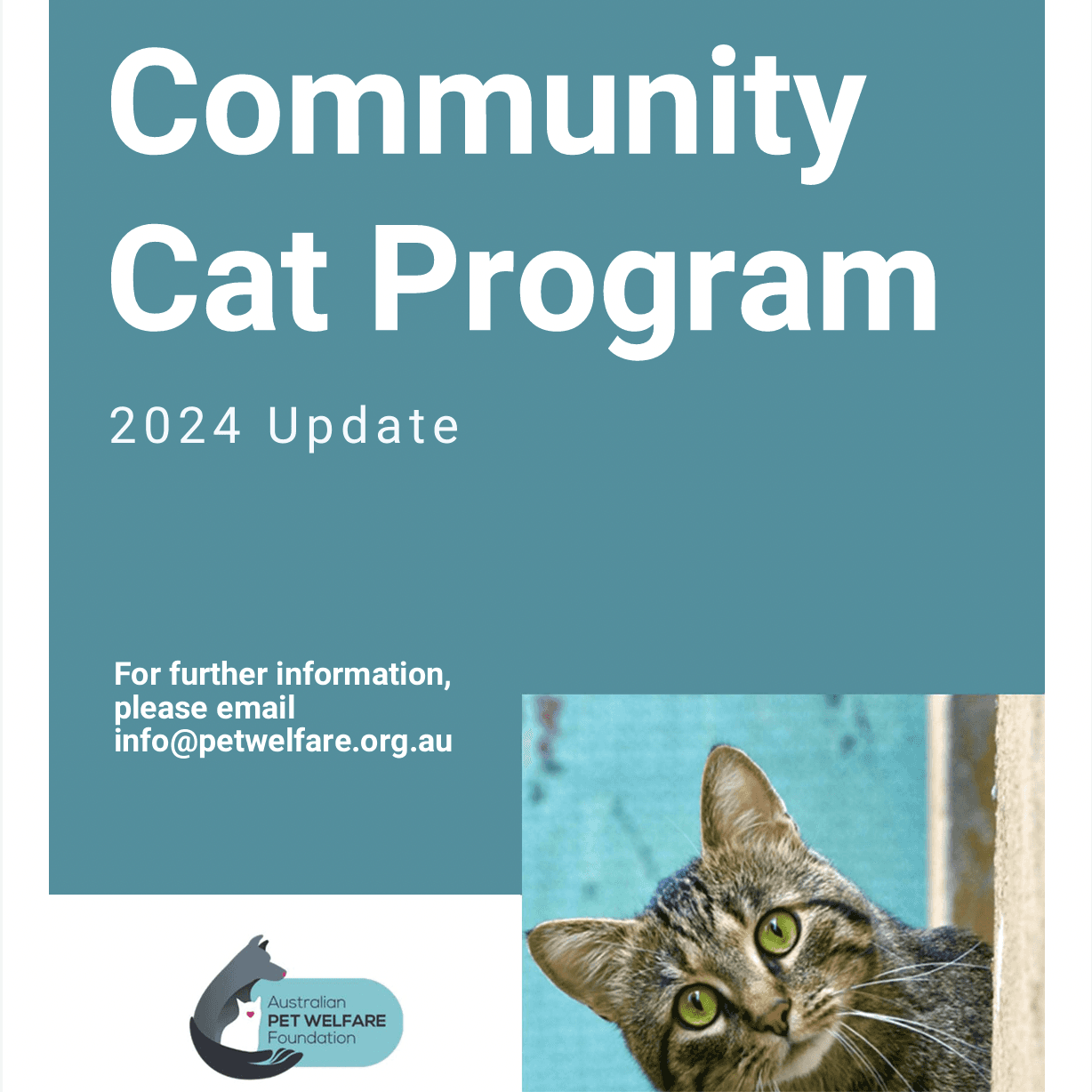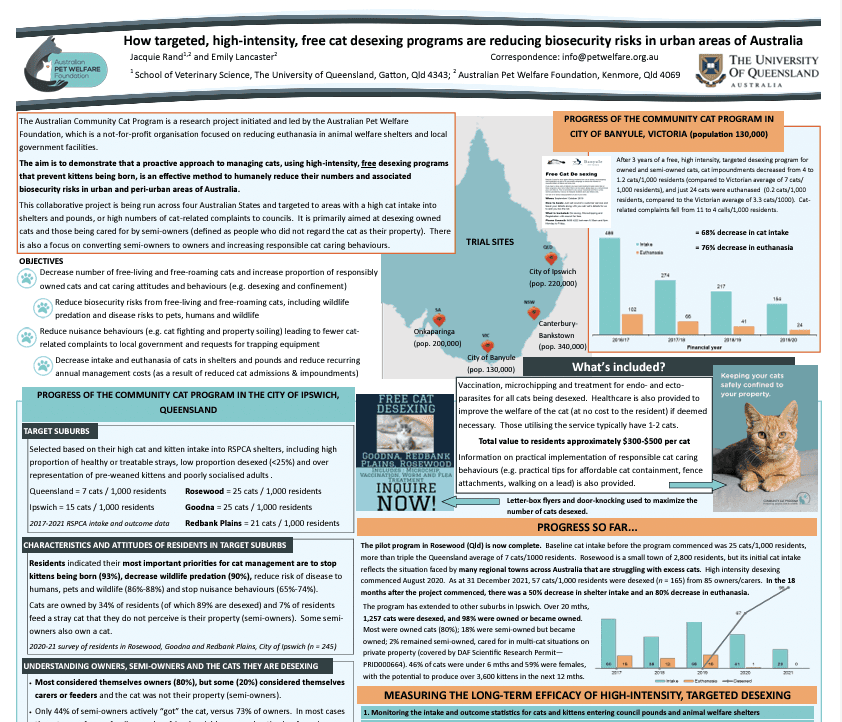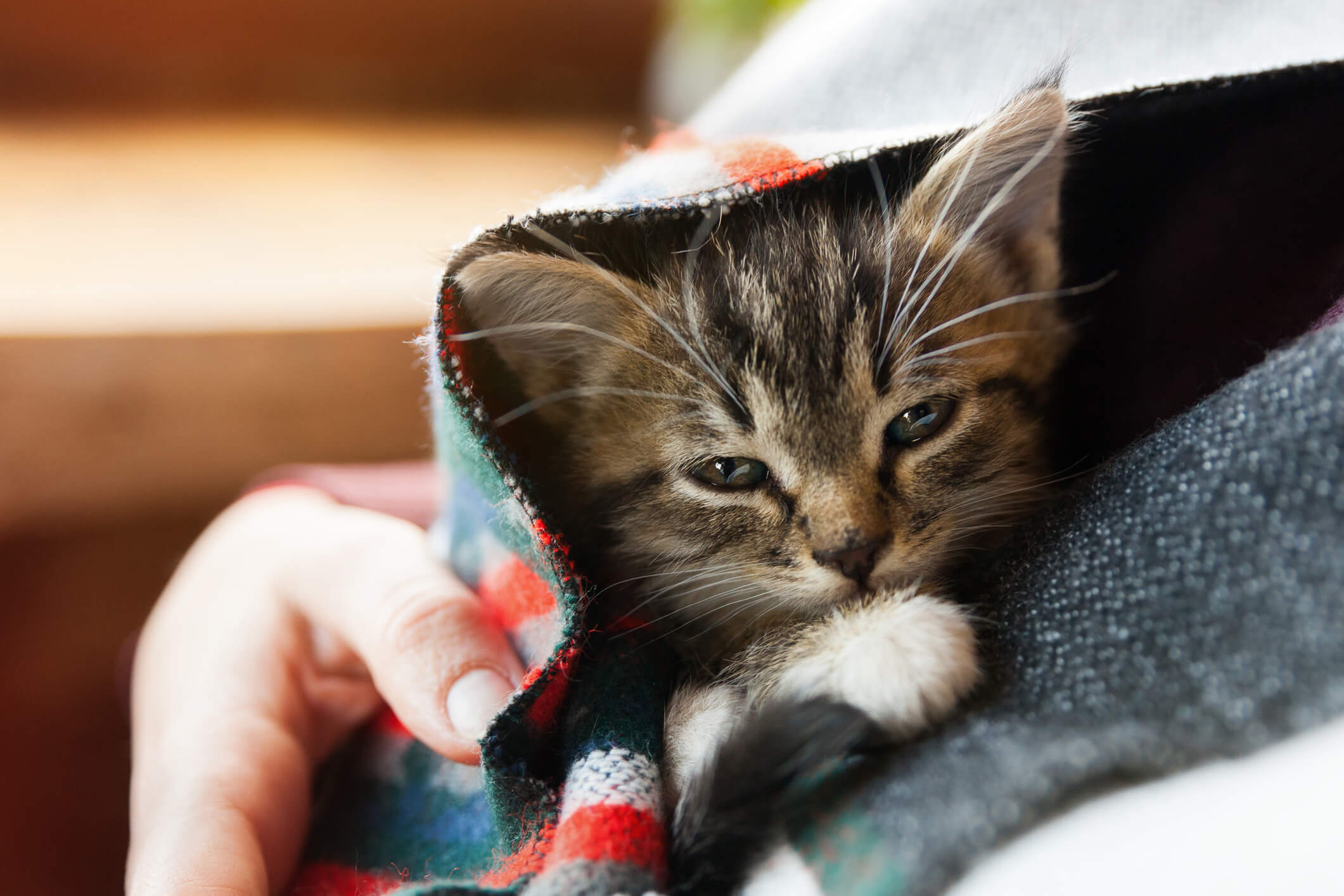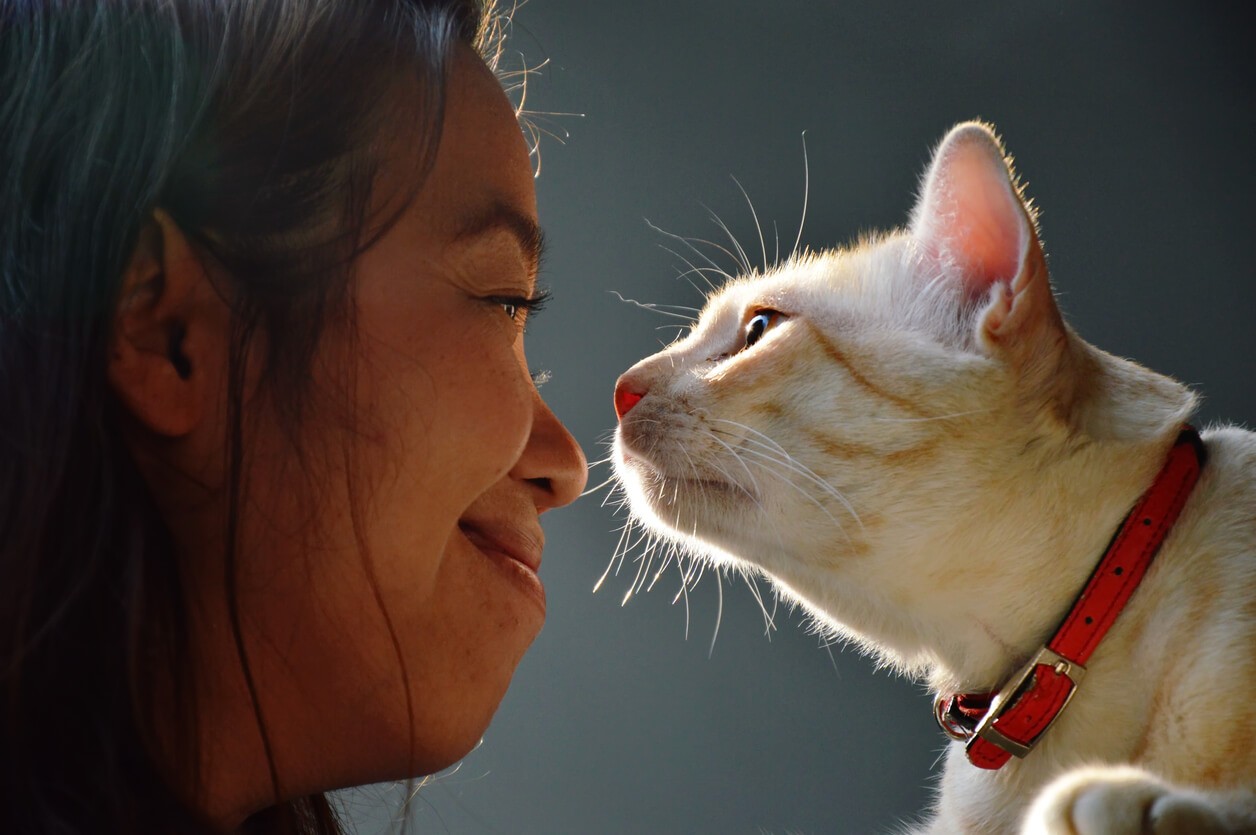
Community Cat Programs
Community Cat Programs (CCPs) are proven to humanely and sustainably reduce the population of stray cats in urban areas. By collaborating with communities to manage their cat populations and protect native wildlife, without resorting to euthanasia, these innovative programs tackle the causes and consequences of overpopulation, while protecting cherished human-animal bonds.
We cannot adopt or kill our way out of a stray cat problem
Since 2020, the Australian Pet Welfare Foundation (APWF) has piloted innovative approaches to the management of strays within communities with high numbers of cat complaints. With standard interventions failing to halt the cycle of breeding, impoundment and euthanasia, and failing to achieve a meaningful reduction in the number of stray cats, the team initiated a transformational program of research.
The problem
Despite some council-operated pounds euthanising every single stray cat and kitten brought into their care, overall numbers are not decreasing.
Instead, shelters, rescues and pounds are crowded with lost and homeless pets, staff involved in euthanising and community members who care for their animals are traumatised, and the public purse carries the financial burden.
The solution: Community Cat Programs
Community Cat Programs target areas with many free-roaming cats or high levels of nuisance complaints, particularly in disadvantaged locations. Our dedicated team works in partnership with the local community, Council and shelters to introduce pragmatic care solutions and build community awareness about caring for neighbourhood cats.
Owned and stray cats are desexed, microchipped and registered for free
People caring for stray cats are assisted to adopt them officially
New homes are found for friendly stray cats and kittens where possible
Instead of being euthanised, healthy strays that aren’t considered adoptable (for example, they’re fearful of people at the shelter) are desexed and returned to where they live - this is called ‘return to field’
People caring for multiple stray cats (which is often technically illegal) are supported to continue caring for them
A carer is identified for each stray/community cat to continue feeding and monitoring their health
Support is provided to pet owners and community carers to help keep cats safe, healthy and with their human companions
Teams help residents tackle pet-related neighbourhood conflict, and resolve nuisance issues in a constructive way
The data
Over a one-to-three-year period, this innovative approach yielded a 30-50% reduction in cat impoundments across targeted areas – numbers that continue to fall in successive months and years.
The program also has significant flow on benefits:
Over time, with no new litters being born, the cat population naturally declines
Fewer stray cats mean less wildlife predation
Reducing the number of stray cats in pounds and shelters frees up more resources to care for and rehome dogs
Job satisfaction and mental health of staff in pounds and shelters are positively impacted (due to reductions in unnecessary euthanasia)
The future
The APWF’s ongoing research into the effectiveness of Community Cat Programs has the potential to transform companion animal management in Australia and across the globe.
Evidence-based and data-driven, our advocacy agenda is focusing on changing legislation, sharing best practice and ending the tide of kittens born to die.
Help us make history
Research is slow, complicated and expensive, but it’s fundamental to change. With your support, we can transform the lives of animals and the people who care for and about them - people who want to help animals live well, not die.
Project partners
This project is being supported by Australia’s leading animal charities and will involve many of Australia’s top universities. International experts are very excited by what we’re doing and are also providing valuable input.
Learn more about Community Cat Programs

Resources

Public Opinions on Strategies for Managing Stray Cats and Predictors of Opposition to Trap-Neuter and Return in Brisbane, Australia
Listen to talk on microtargeting Community Cat Programs presented by our Executive Director Emeritus Professor Jacquie Rand (21 minutes) describing the importance of microtargeting and the powerful positive impact of Community Cat programs in the City of Ipswich. September 2024



Listen to our Executive Director Emeritus Professor Jacquie Rand talk at Science Week 2022 on “Do veterinary staff still need to kill healthy cats and kittens for population control?”
In Community Cat Programs, urban stray cats are captured, desexed, vaccinated, microchipped and treated for parasites. Socialised cats and kittens are then adopted whenever possible, while unsocialised but healthy cats are returned to their home location.

Best practice for community cat carers

Cat Caring Behaviors and Ownership Status of Residents Enrolling a Cat in a Free Sterilization Program.

Solutions-Based Approach to Urban Cat Management—Case Studies of a One Welfare Approach to Urban Cat Management

The Impact of Lethal, Enforcement-Centred Cat Management on Human Wellbeing: Exploring Lived Experiences of Cat Carers Affected by Cat Culling at the Port of Newcastle

Listen to talk on Community Cat programs presented by our Executive Director Emeritus Professor Jacquie Rand at the 2019 G2Z Conference

Listen to talk on Community Cat programs presented by our Executive Director Emeritus Professor Jacquie Rand at the 2017 G2Z Conference

Situational Analysis of Cat Ownership and Cat Caring Behaviors in a Community with High Shelter Admissions of Cats

A Situational Analysis of Attitudes toward Stray Cats and Preferences and Priorities for Their Management
